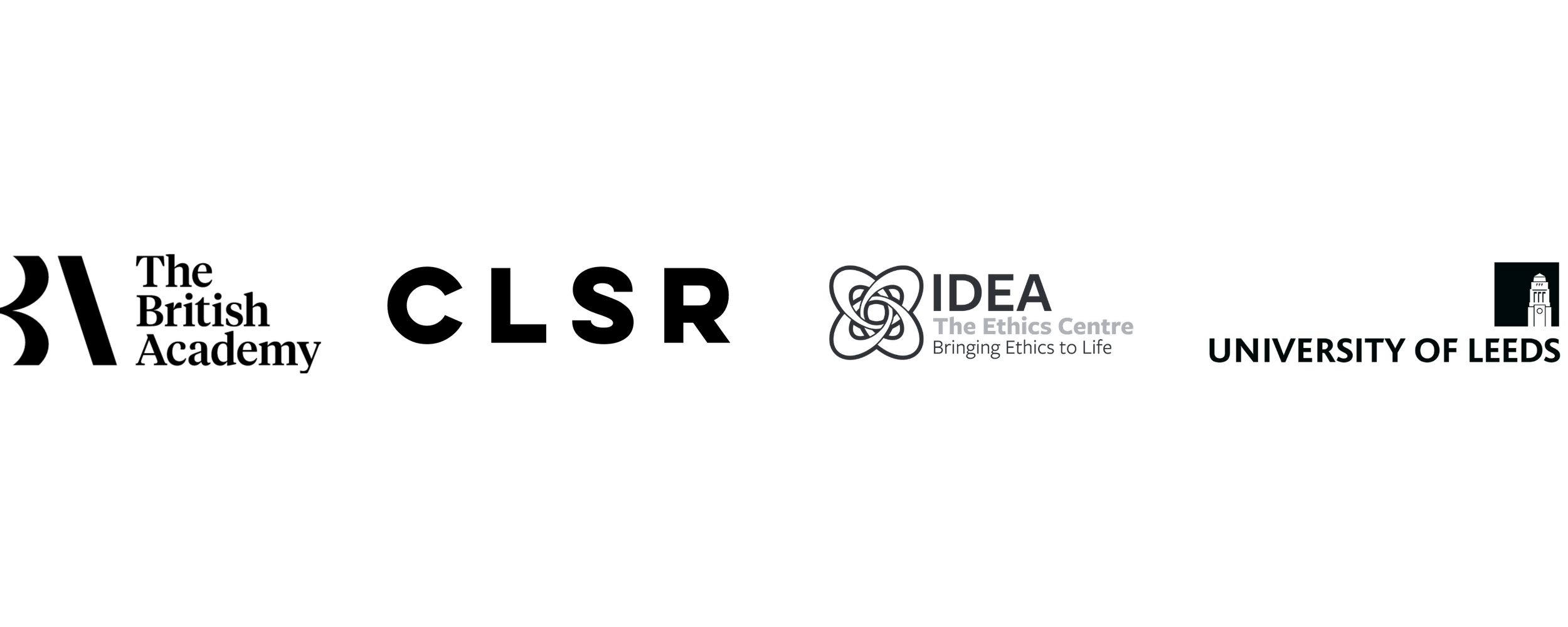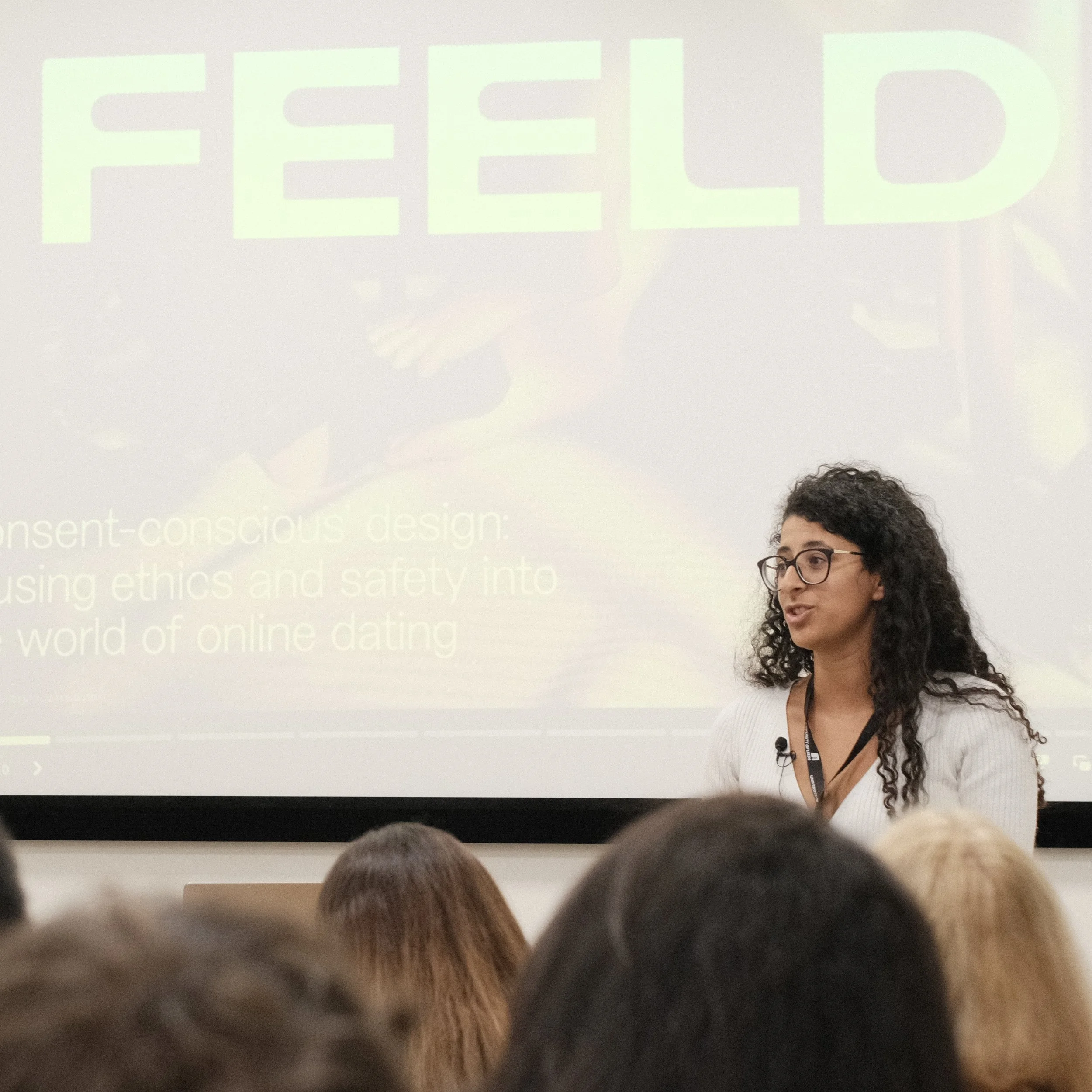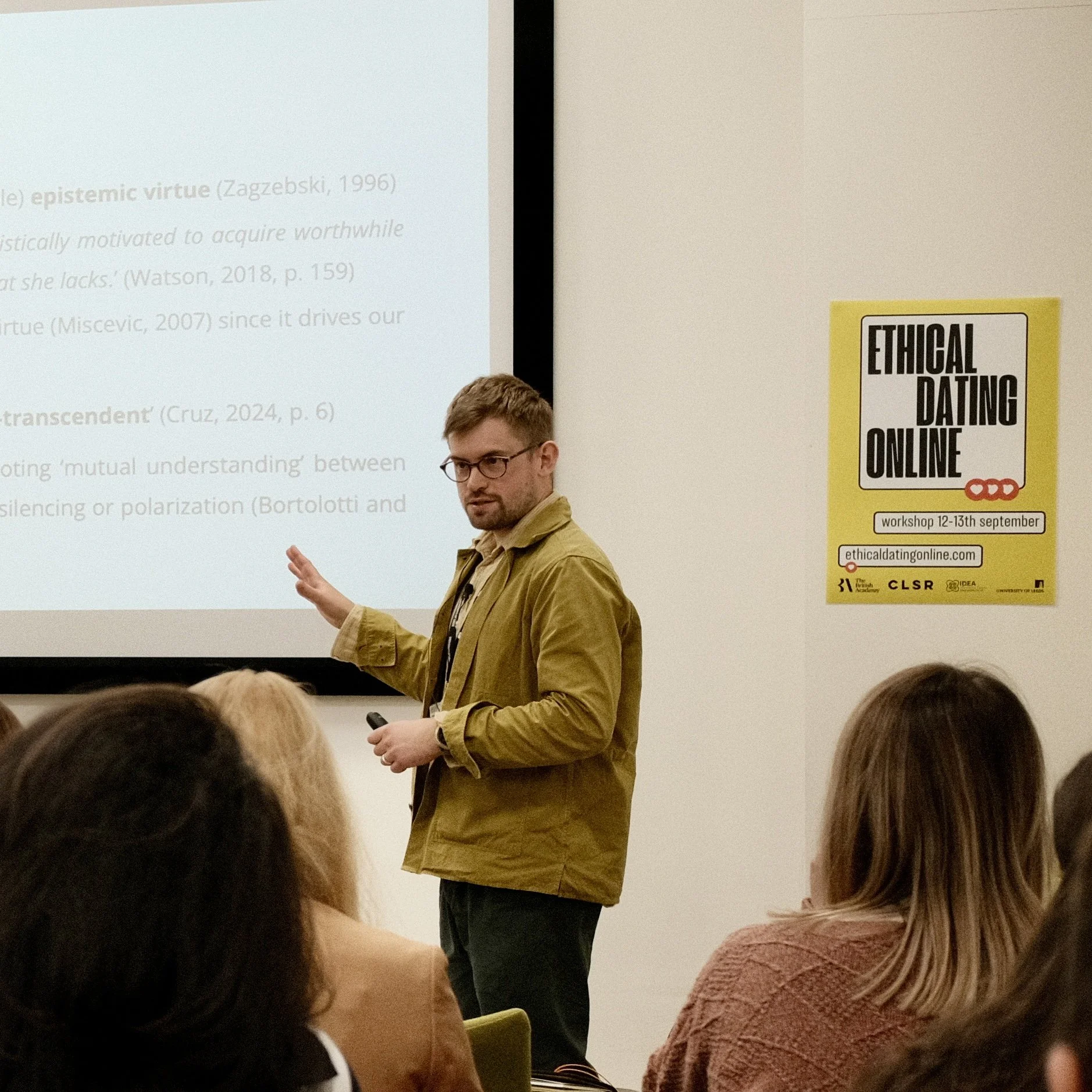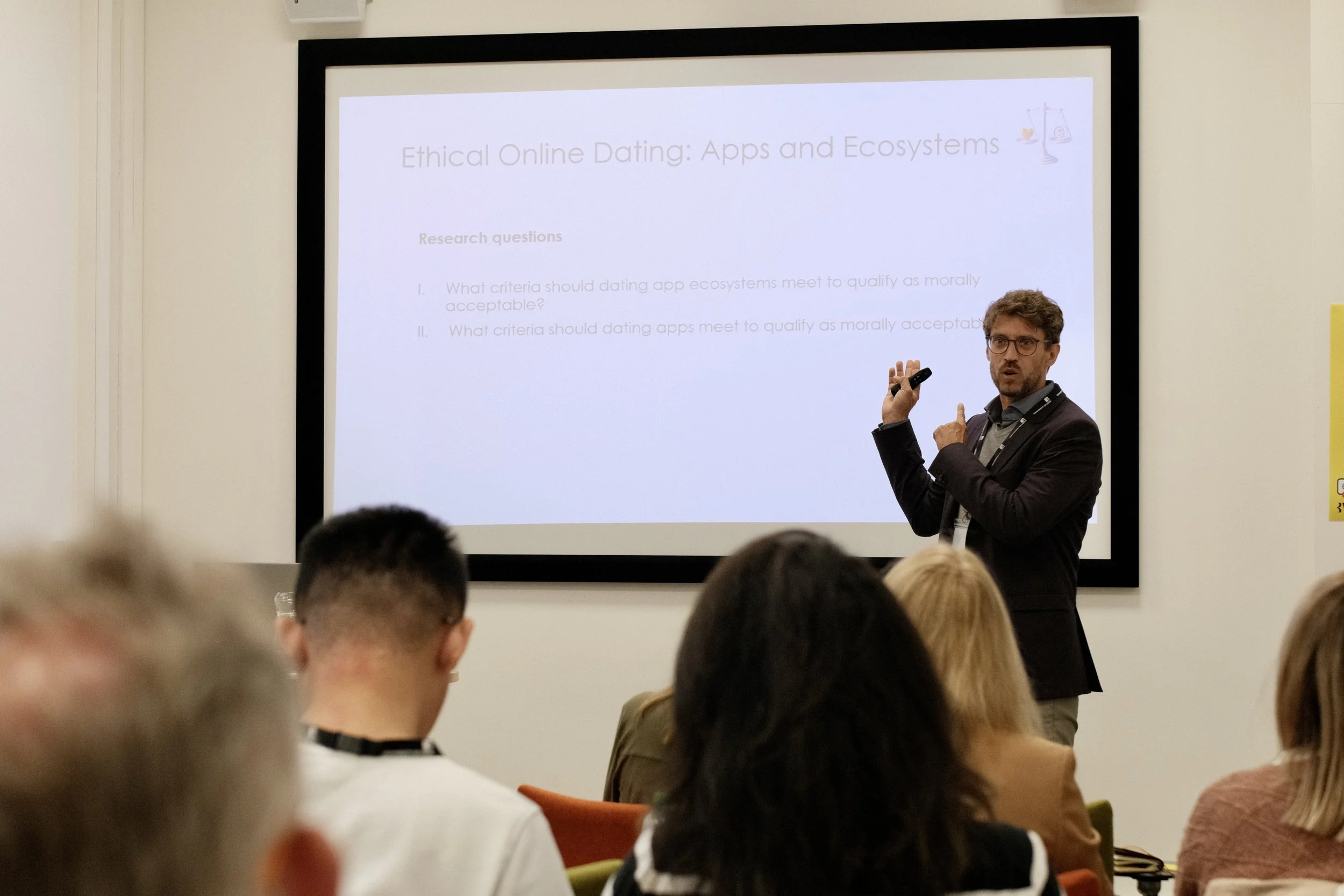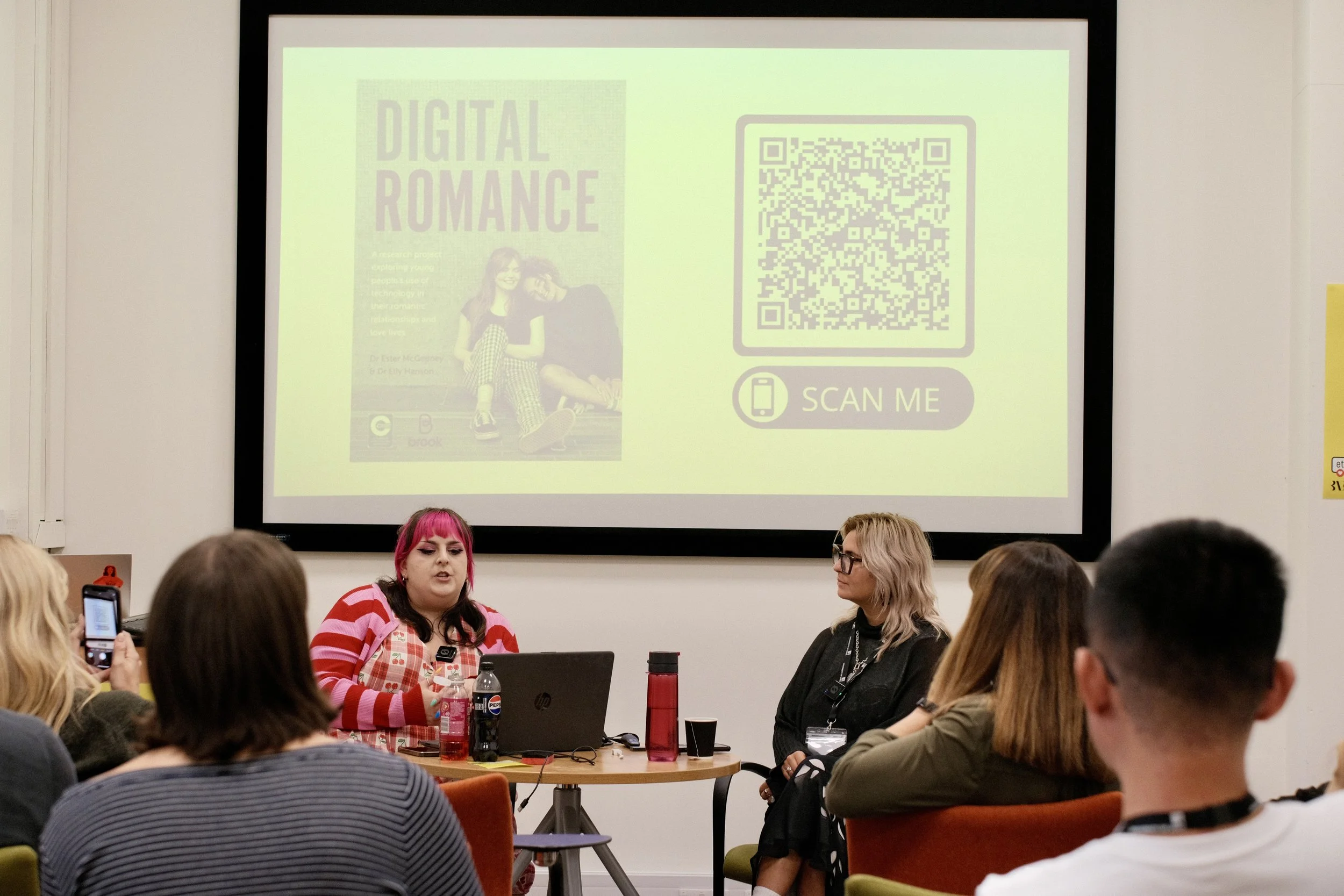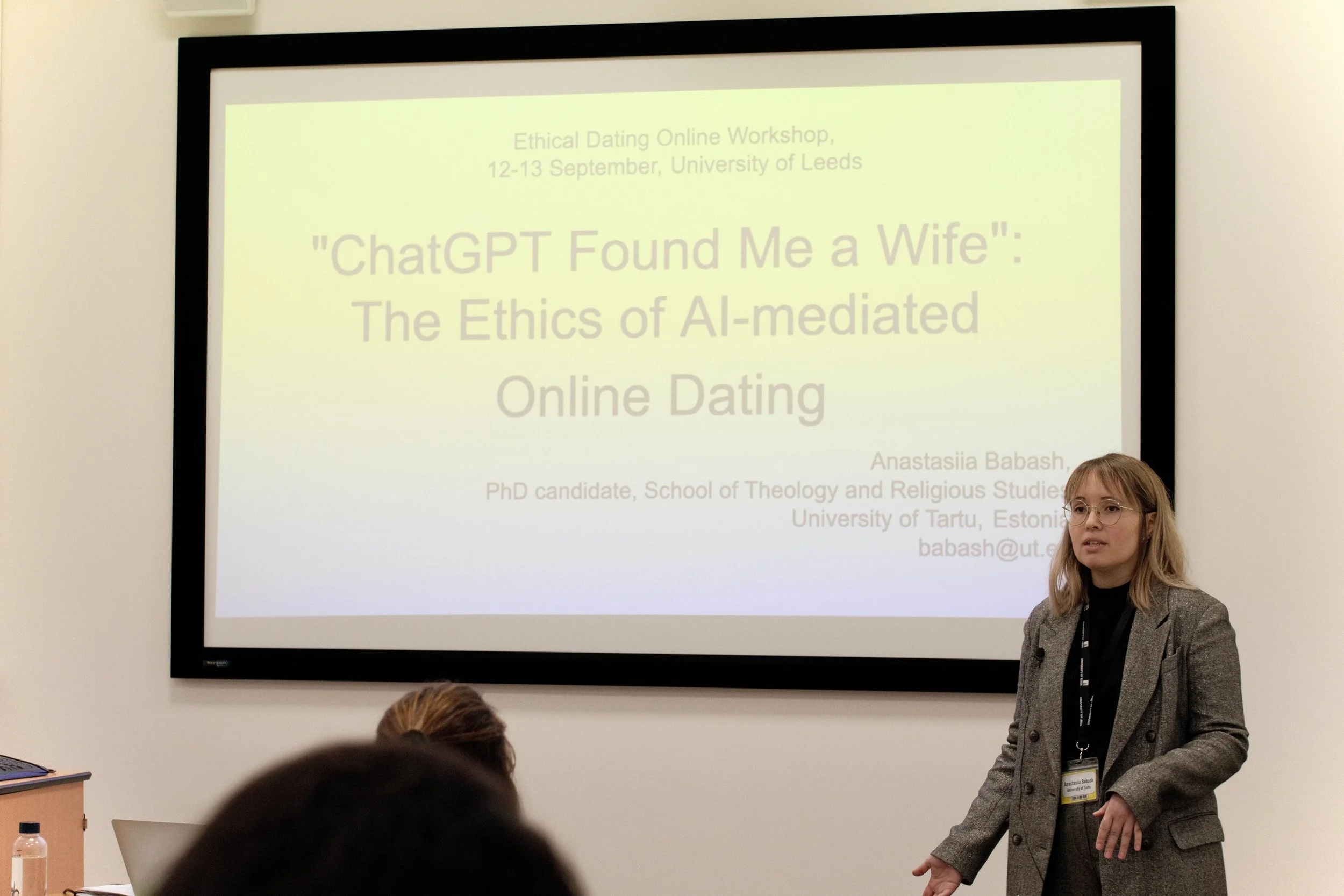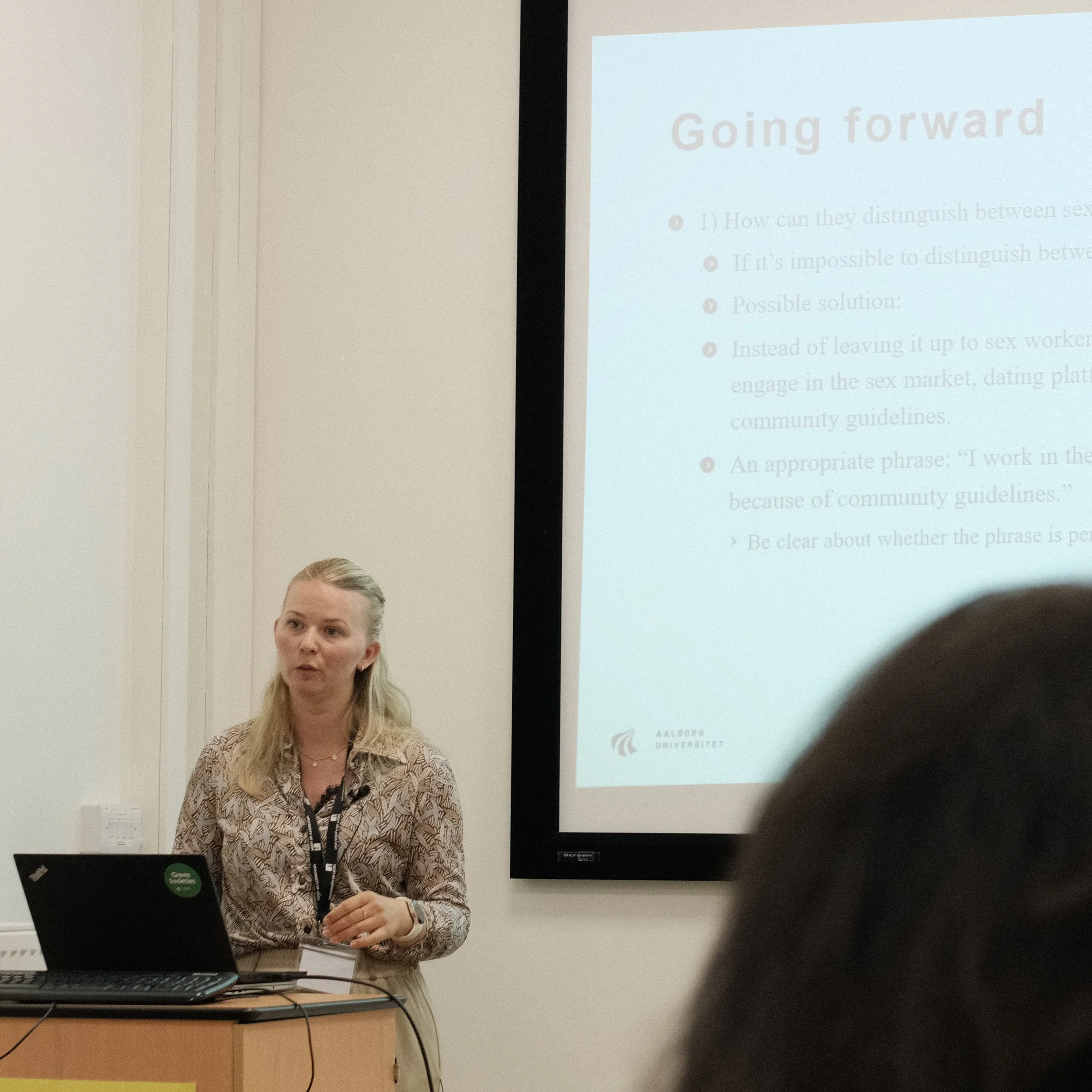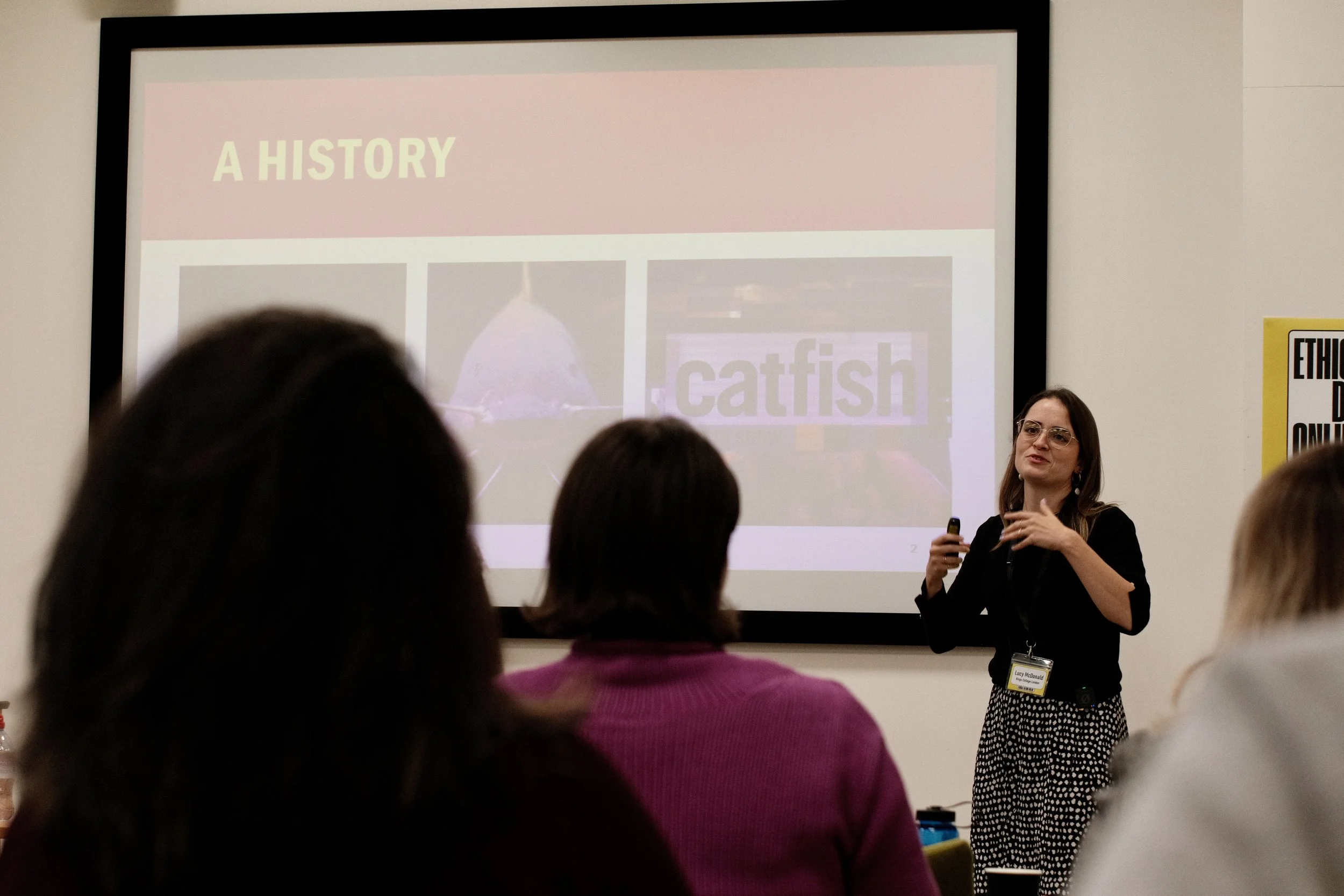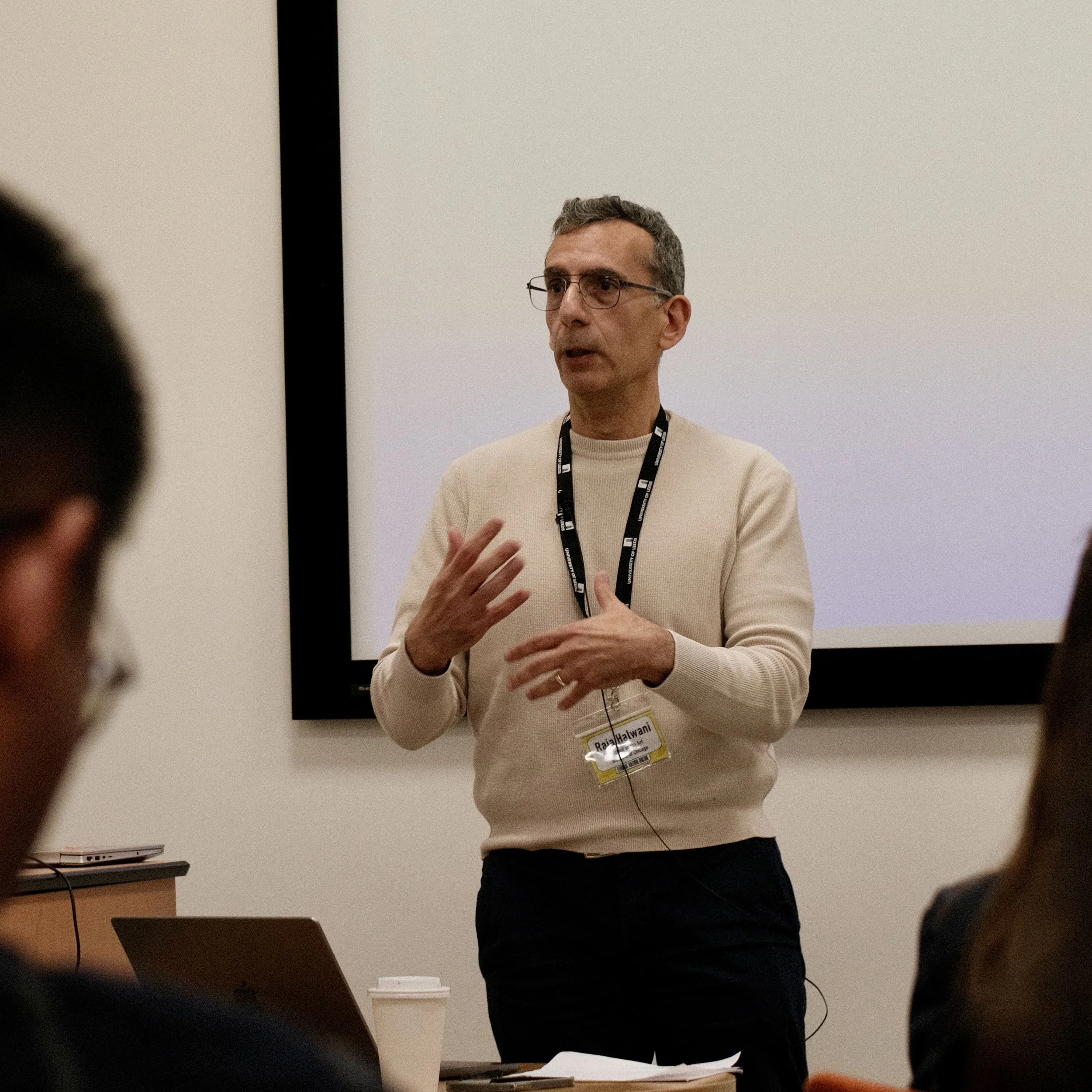Workshop
-
Noor Salema
Noor spoke about the ethical challenges in the different ‘surfaces’ of a dating app; from the development of policy, to human enforcement, automated enforcement, and the in-app experiences of Feeld community members. Noor set out many of the practical constraints which shape their decision making in matters of digital intimacy, and our discussion ranged widely over topics of informed consent, human moderation, age verification and discrimination.
-
Luke Brunning
Luke presented on curiosity and dating. His talk related philosophical discussion of curiosity as an emotion with different dating styles, and matters of dating-app design. He argued that curiosity is valuable but takes several forms, each of which has its own ethical risks. Dating apps should design for curiosity, he suggested, but doing so in a responsible way involves complex trade-offs which are not fully understood.
-
![]()
Lily Frank and Michal Klincewicz
Lily and Michal explored digitally mediated deception. They argued that much discourse on dating apps is ‘bullshit in Harry Frankfurt’s technical sense. They then argued that bullshitting on dating apps is often permissible for individual daters, given the structural state of modern dating, but that to facilitate a digital environment where this happens is morally problematic.
-
Martin Beckstein and Bouke de Vries
Martin Beckstein and Bouke de Vries explored the moral conditions on ethical dating app ecosystems in general, and specific dating apps in particular. Their talk ranged over matters of state regulation, state-run dating apps, non-profit compliments to commercial dating apps, as well as more controversial possibilities like the use of dating apps for social engineering. One key takeaway from their presentation is that an ‘authentic pluralism’ of different apps might be required to enable everyone to access intimate goods.
-
Alice Hoddinott and Ruby Rare
Broadcaster, educator, and influencer Ruby Rare and Brook charity representative Alice Hoddinott ended the first day of the workshop with a fantastic presentation about the ethical challenges young people face when using dating apps, and the urgent need for educators to address those challenges. Alice urged us to confront the reality that many under-18s were bypassing age-verification to use apps, or were dating in other contexts online, and helped us appreciate how relationship education might provide answers. Ruby was a fantastic advocate for both the pleasures and ambivalences of online dating, especially for the queer community, but also draw our attention to the neglected 18–23-year-old demographic, who often lack access to educational services precisely at the moment they are able to start exploring intimacy online.
-
Anastasiia Babash
Anastasiia Babash explored the ethics of AI integration in online dating. Anastasiia walked us through the infamous recent case of Aleksandr Zhadan who built a succession of increasingly-personalised ChatGPT bots to talk to 5000 women until he ultimately proposed. We explored many different reasons to be wary of AI in digital intimacy, from consent, trust, authenticity, autonomy, commodification, and so on – but Anastasiia ultimately argued for a cautious optimism and ‘harm reduction approach’ to the ethical value of some AI integration which could see it address some of the ways online dating is currently broken.
-
Simone Somer Degn
Simone spoke about sex work and online dating. She argued that there might be reasons to ban sex work on dating apps, as this arguably introduces market considerations into a space where people expect to interact on non-market terms, but there are no good reasons to prevent sex workers from being present on dating apps, or talking about their occupation, as private individuals looking for intimacy, dates, and love.
-
Lucy McDonald
Lucy McDonald explored the ethics of catfishing. She defined cat- and kitten-fishing in both extreme and moderate forms before setting out the many ethical reasons why we should be wary of this practice. However, her argument suggested that catfishing can often be understood or even excused as a response to a structural arrangement of norms and expectations which makes it hard for some people to present as themselves online if they are to have success in arranging to meet others.
-
Raja Halwani
Raja Halwani explored lookism in online dating, namely the differential treatment of other people on grounds of a feature of appearance (e.g. a racial feature or general attractiveness). He set out a nuanced case that lookism can be morally permissible in matters of sex, even if we are less confident this is so in matters of love. He showed how many critiques of lookism often talk of sex and love in the same breath, but that we should be less certain that we need to strive to avoid, or neutralise, preferences for people on the grounds of appearance.
-
![]()
Collaborative discussion
The workshop ended with a general discussion of avenues of potential collaboration. The goal was to better understand how academics could make a feasible positive impact. This could involve general efforts to support cultural or legislative frameworks around intimacy, or much more specific collaborative work to shape the different aspects of dating app policy, moderation, and design. Noor and Lyubov, from Feeld, helped us understand the places where academic research can have a real impact over the next five years.
Our supporters
